The forum contributes to suggesting solutions and recommendations to identify important supports for businesses to overcome difficulties and challenges; at the same time, it points out opportunities and lessons learned to help businesses improve their competitiveness in the new context.
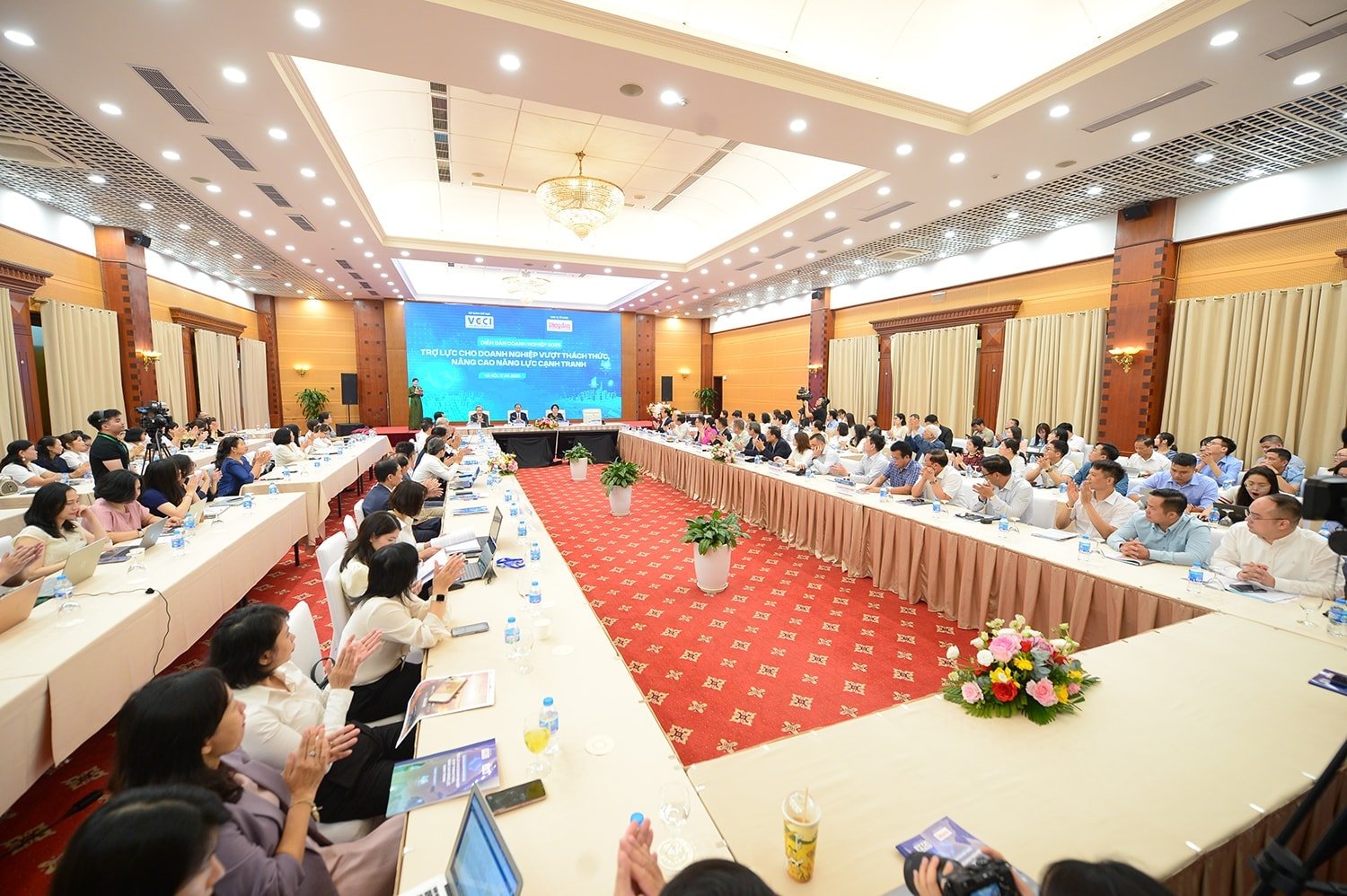
Businesses face many adverse impacts of objective context
Vietnam's economy in the first quarter of 2025 took place in a context where the world economy had many unstable and unpredictable factors. Instability in economic policies, especially international trade policies, put pressure on consumer spending, investment, and the uncertainty in growth of the world's leading economies. In addition, internal problems of enterprises such as changes in labor structure, shortage of highly skilled human resources, requirements for green transformation and digital transformation require rapid adaptation.
Data from the General Statistics Office (Ministry of Finance) shows that the economic growth in the first quarter of 2025 reached 6.93%, a very positive growth rate. This figure has demonstrated the high determination, great efforts, drastic and effective actions of the entire political system in the face of rapid and unusual fluctuations in the region and the world. In the first quarter of 2025, the whole country had more than 72.9 thousand newly registered and resuming operations, an increase of 18.6% over the same period last year.
However, a survey by VCCI shows that only 32% of businesses said they would expand production and business in the next 2 years. Although there are nearly 1 million businesses in operation, Vietnamese businesses are still mainly micro, small and medium-sized enterprises (accounting for 98%) and only about 2% are large enterprises.
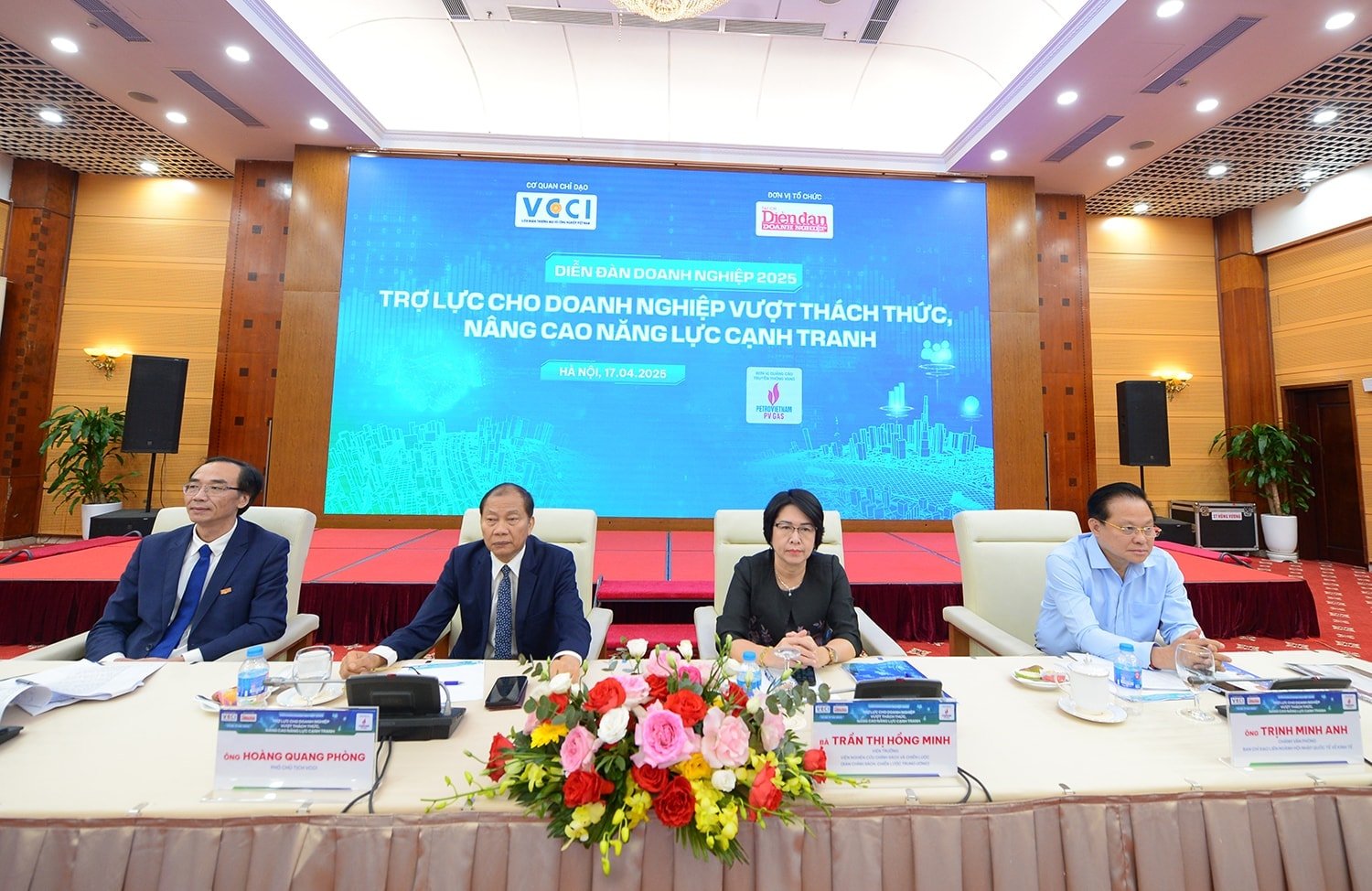
Mr. Hoang Quang Phong - Vice President of the Vietnam Federation of Commerce and Industry (VCCI) said that the business community in general still faces many difficulties and challenges. Production and business activities of the business sector are still subject to many adverse impacts from the objective context, geopolitical conflicts, and disruptions in supply chains and input materials.
According to the Vice President of VCCI, to make a breakthrough in 2025, institutional reform, promoting and supporting businesses will be the key, not only increasing the ability to absorb capital for businesses, but also developing and improving the competitiveness of Vietnamese businesses, including the private economic sector, to gradually master core technology and penetrate deeper into the global value chain, which is an important requirement in the coming time.
Proposing solutions to overcome difficulties for businesses to improve their competitiveness
Speaking at the forum, Mr. Nguyen Duy Hung, Chairman of the Board of Directors, ensuring the operation and reputation of Tan Hiep Phat Company, shared the affirmation of the Party and Government on the role and contribution of private enterprises to the development of the country, creating an important driving force for enterprises.
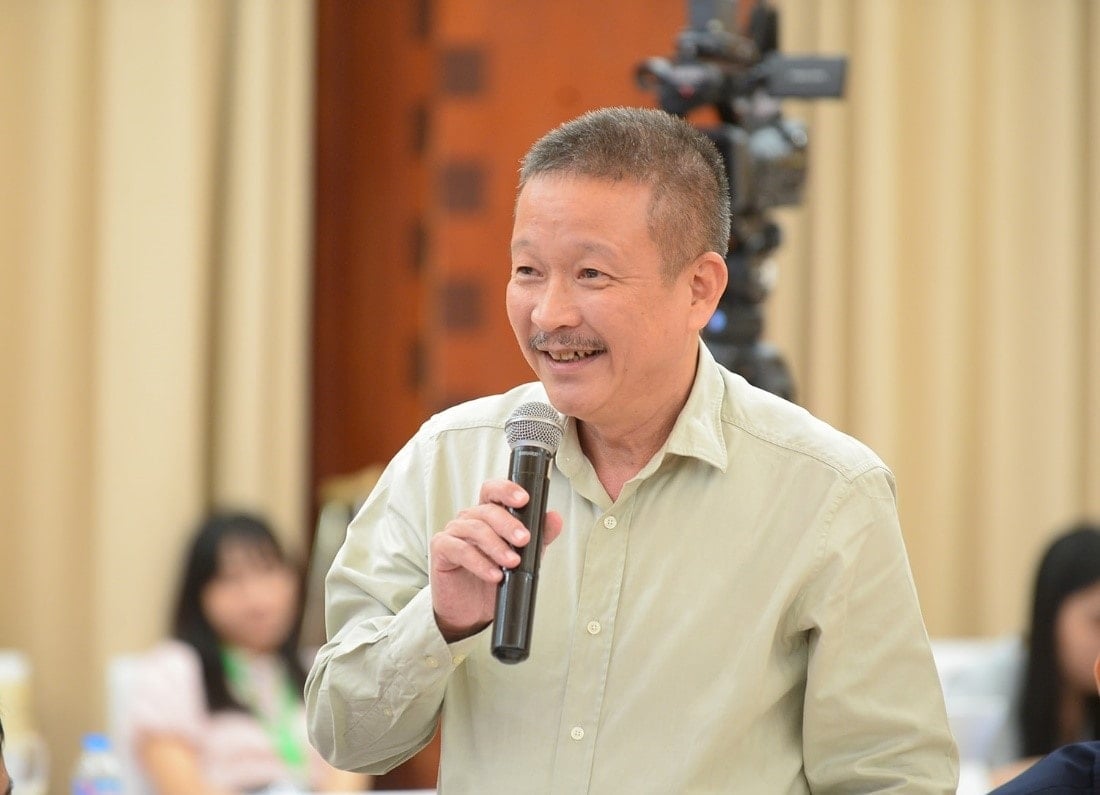
To remove difficulties and support businesses, improve competitiveness, Mr. Nguyen Duy Hung gave 7 suggestions to improve the business environment and enhance the competitiveness of Vietnamese businesses.
Firstly, improving the competitiveness of Vietnamese enterprises is associated with optimizing the benefits of the supply chain, the value chain of Vietnam, optimizing the benefits of the country. The competitiveness of enterprises is associated with the competitiveness of the country. Ensuring economic self-reliance, ensuring national defense and security.
Second, trust is a very important factor in business. Specifically, businesses need to have faith in the stability, consistency, predictability, transparency, fairness, and enforceability of policies.
Enterprises and their stakeholders (from partners, customers, employees to shareholders) need to trust each other. The State also needs to trust. The State believes in the compliance, transparency, responsibility and capacity of enterprises. From there, the State creates business opportunities for enterprises, reduces administrative procedures, increases autonomy and allows enterprises to take responsibility for themselves, and assigns important projects to enterprises.
“With its belief, over the past 30 years, Tan Hiep Phat has always had a long-term vision and goal, continuously developing, using all profits to reinvest, with more than 300 million USD for 12 of the most modern Aseptic lines in the world and 8 factories, creating jobs and contributing to the budget,” Mr. Hung added.
Third, perfecting the national quality infrastructure: NQI helps businesses improve product quality, meet the requirements of domestic and foreign consumers, and expand the market. NQI promotes international market recognition of Vietnamese products, reduces technical barriers to trade, and helps the country's goods and services participate in the global supply chain.

“Tan Hiep Phat is currently applying strict quality management systems in the world for its operations such as: Food standards system according to Islamic Law - HALAL FOOD; Certification of the US Food and Drug Administration - FDA ...
High quality standards protect consumers, force manufacturers to comply, and negatively impact raw material growers, suppliers, and distributors. Athletes who want to compete in high-performance sports events must train with high intensity and high standards with goals compatible with that event,” Mr. Hung emphasized.
Fourth, on building the supply chain, the Vietnamese value chain. The global value chain includes many components, from many different countries participating in the process of production, product distribution and consumer support.
The global value chain aims at specialization, optimizing the benefits of the participants from growing raw materials, research and development, providing machinery and equipment, construction, production, transportation, distribution, etc. The components participating in the global value chain must continuously improve and adapt to compete so as not to be replaced by other businesses with better and cheaper products and services.
We have only one way, which is to improve the competitiveness of each Vietnamese enterprise linked to the Vietnamese supply chain and benefit chain.
This supply chain and benefit chain are linked together on the basis of trust, high standards, and long-term benefits, which will create an independent, self-reliant Vietnamese economy with enough internal strength to proactively integrate and proactively adapt.
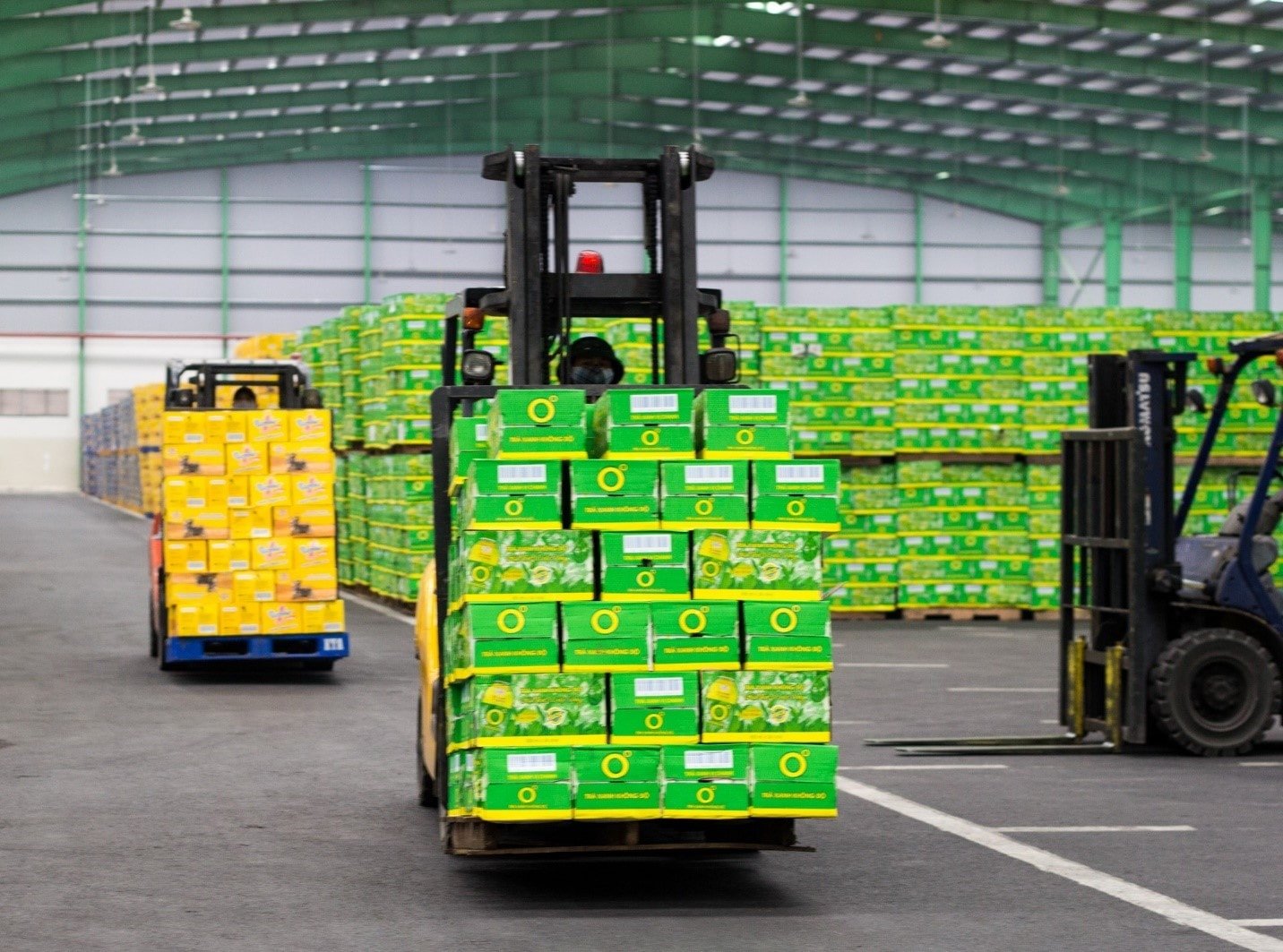
Tan Hiep Phat is a healthy beverage producer, with input materials starting from tea and herbs grown by farmers. The chain of interests associated with Tan Hiep Phat includes farmers, thousands of suppliers, 700,000 product distribution points, and regularly maintains 3,500 - 4,000 direct workers. Most input costs are spent domestically.
Fifth, there needs to be policies and directions to clearly identify products with Vietnamese origin and geographical indications to register for protection, thereby building brands to bring Vietnamese products to the international market.
As of August 2024, Vietnam has protected 141 geographical indications for regional specialty products, including: Agricultural products and fruits (Luc Ngan lychee - Bac Giang, Hung Yen longan, ST rice - Soc Trang ...); Seafood and processed products (Phu Quoc fish sauce, Phan Thiet fish sauce, Ha Long squid rolls ...); Handicrafts and local specialties (Hue conical hats, Bat Trang pottery, Ben Tre coconut candy ...).
However, by the end of 2024, Vietnam will only have 41 products protected by geographical indications in the international market, including 39 products in the EU and 2 products in Japan.
Sixth, about choosing partners when integrating. The integration process will have many opportunities and risks. One of the opportunities is that Vietnam can immediately access the world's achievements.
To improve competitiveness and efficiency, Vietnamese enterprises need to target large, capable, and reputable partners in the world and build a sustainable, long-term relationship. “Standing on the shoulders of giants” helps us develop faster and save time.
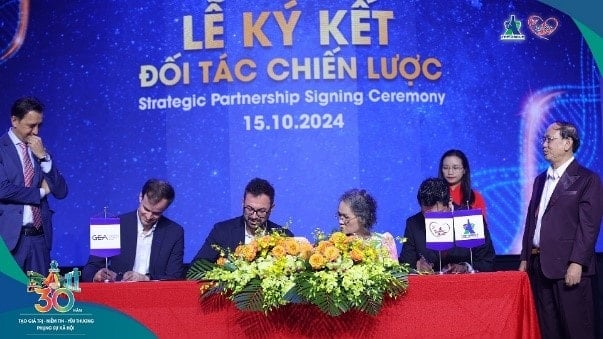
That is why, in 30 years of development, THP has been cooperating with the world's largest partners in technology and raw materials in the beverage industry: GEA (Germany), KRONES (Germany), HUSKY (Canada), BRENNTAG (Germany), TAKASAGO (Japan)... to bring consumers high-quality beverage products according to international standards.
Seventh, be ready to change and take advantage of opportunities when they change. A volatile market can be a risk for one person but an opportunity for another.
The State aims at the common goals of the Nation and the people. Enterprises do business for themselves and fulfill social responsibilities, accompanying the goals of the State.
“Up to now, Tan Hiep Phat has implemented synchronous solutions on technology investment, research, innovation, digital transformation, human resources, circular economy, sustainable development... to improve competitiveness and fulfill social responsibilities.

We recommend creating a common policy for the market, creating a business environment with trust, high standards, and fair competition to enhance Vietnamese brands and Vietnamese values. At the same time, there should be a policy to develop Vietnamese enterprises linked to the supply chain and the Vietnamese benefit chain. Thereby ensuring economic self-reliance, security, and national defense in all cases.
Tan Hiep Phat believes that with the attention and strong direction of the Party - headed by the General Secretary, and the Government - headed by the Prime Minister, Vietnam will certainly achieve the set development goals," Mr. Nguyen Duy Hung emphasized.
Source: https://baodaknong.vn/doanh-nghiep-de-xuat-7-giai-phap-tro-luc-nang-suc-canh-tranh-trong-tinh-hinh-moi-249964.html


![[Photo] National Assembly Chairman Tran Thanh Man chairs the meeting of the Subcommittee on Documents of the First National Assembly Party Congress](https://vphoto.vietnam.vn/thumb/1200x675/vietnam/resource/IMAGE/2025/5/8/72b19a73d94a4affab411fd8c87f4f8d)
![[Photo] President Luong Cuong presents the decision to appoint Deputy Head of the Office of the President](https://vphoto.vietnam.vn/thumb/1200x675/vietnam/resource/IMAGE/2025/5/8/501f8ee192f3476ab9f7579c57b423ad)
![[Photo] General Secretary concludes visit to Azerbaijan, departs for visit to Russian Federation](https://vphoto.vietnam.vn/thumb/1200x675/vietnam/resource/IMAGE/2025/5/8/7a135ad280314b66917ad278ce0e26fa)
![[Photo] General Secretary To Lam begins official visit to Russia and attends the 80th Anniversary of Victory over Fascism](https://vphoto.vietnam.vn/thumb/1200x675/vietnam/resource/IMAGE/2025/5/8/5d2566d7f67d4a1e9b88bc677831ec9d)

![[Photo] Prime Minister Pham Minh Chinh meets with the Policy Advisory Council on Private Economic Development](https://vphoto.vietnam.vn/thumb/1200x675/vietnam/resource/IMAGE/2025/5/8/387da60b85cc489ab2aed8442fc3b14a)
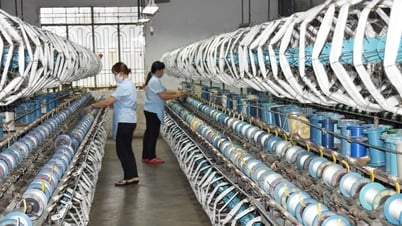
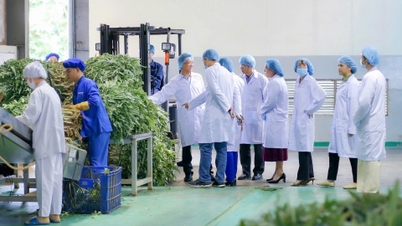

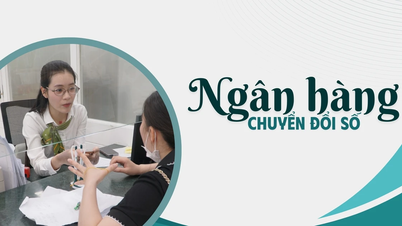

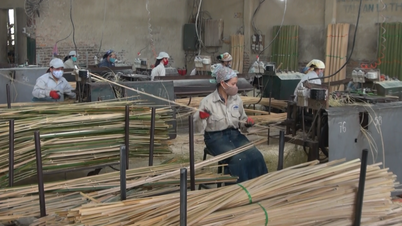









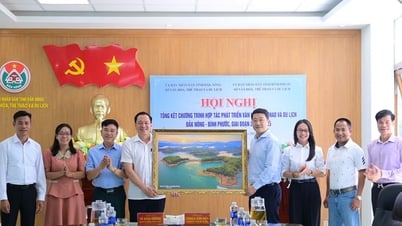

































![[Photo] Prime Minister Pham Minh Chinh talks on the phone with Singaporean Prime Minister Lawrence Wong](https://vphoto.vietnam.vn/thumb/402x226/vietnam/resource/IMAGE/2025/5/8/e2eab082d9bc4fc4a360b28fa0ab94de)














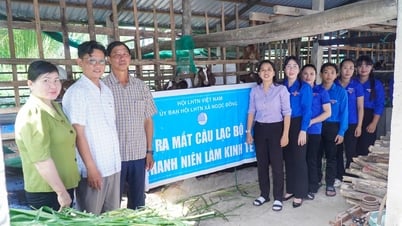

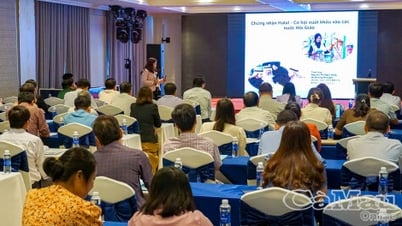

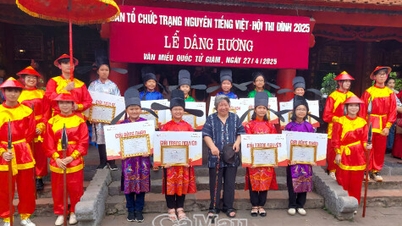












Comment (0)